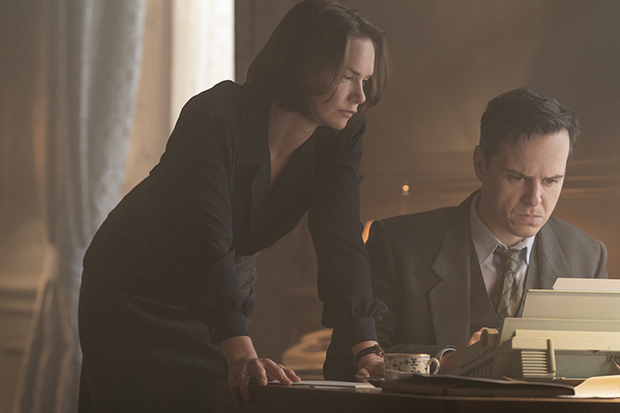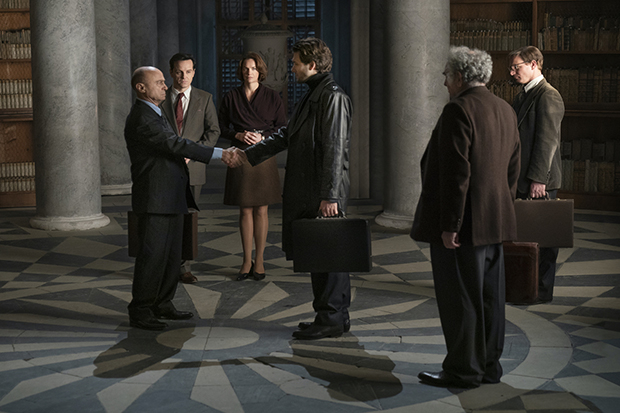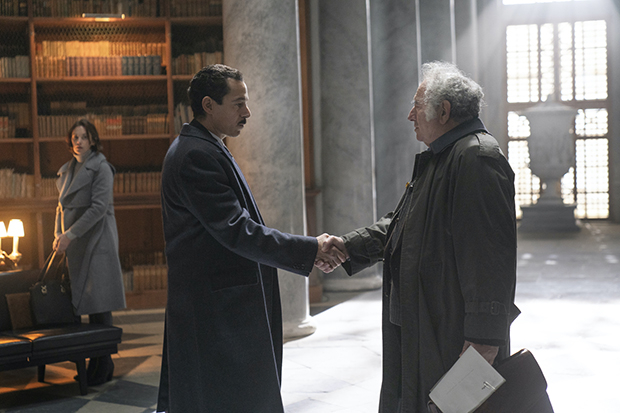Review: Oslo Once Again Wonders Why Israelis and Palestinians Can't Get Along

(© Larry D. Horricks/HBO)
History has a knack for instilling newfound relevance into even the oldest works of art. Not that Oslo, J.T. Rogers's Tony-winning docudrama about the agreement between Israelis and the Palestinian Liberation Organization (PLO) secretly negotiated in Oslo in 1993, is all that old (it premiered off-Broadway in 2016).
But a new film adaptation of the play, which premieres on HBO on Saturday, May 29, arrives just after a recent flare-up of violence between Israel and the Palestinian militant group Hamas, giving it fresh relevance. As recent events may renew despair in some that Israelis and Palestinians will ever find a path to peace, the film dramatizes a brief, shining moment when such a reconciliation seemed within reach.
The basis of Oslo is factual: While publicly the United States was brokering a peace deal between Israel and the PLO, Norwegian diplomatic couple Terje Rød-Larsen (played in the film by Andrew Scott) and Mona Juul (Ruth Wilson) were facilitating a series of backdoor negotiations between representatives on both sides that ultimately made an accord possible.
But since not much about what went on behind the closed doors of these discussions is known even now, Rogers's play, as he says in his introduction to the published script, is less interested in facts than in "the spirit of those real events — their craziness, fear, joy, and heartbreak." Thus, Oslo deserves to be taken as a work of speculative fiction — and on that level, years removed from its much-feted Lincoln Center off-Broadway and Broadway runs, it leaves quite a bit to be desired.
At one point in both the play and the film, Terje articulates his own "gradualist" philosophy of diplomacy, one that, in stark contrast to the more public "totalist" approach, prizes the personal above the organizational. If only Rogers's approach to the personal didn't seem so hackneyed. However real were PLO Finance Minister Ahmed Qurie (Salim Dau) and Israeli Foreign Ministry Director-General Uri Savir (Jeff Wilbusch, decked like a rock star by designer Catherine Zuber), they and many other involved parties are written and played as little more than broad, hearty types.

(© Larry D. Horricks/HBO)
Rogers's characterizations of Terje and Mona are hardly more dimensional. Beyond Terje's desire to see his own philosophy put into action, we barely get a sense of him as a human being. Scott's performance hints at an impish side, which is quashed by the solemn tone adopted by director Bartlett Sher (who also directed the New York stage productions).
More so than in the play, Mona becomes the film's emotional center, especially as played with clear-eyed gravity by Wilson. To that end, Rogers adds one additional wartime flashback, revealed in bits throughout the film, that sketches a clearer motivation for her own investment in the success of these talks. But even that flashback — a moment in which Mona witnesses an Israeli soldier and a Palestinian suicide bomber looking into each other's eyes just before another Israeli soldier takes the Palestinian out — suggests a blandness underlying the project as a whole.
A more complex vision of "shared humanity" might have acknowledged the longstanding political and cultural resentments that have made finding peace between Israelis and Palestinians so agonizingly difficult. Instead, Rogers's vision never goes beyond clichés, like people on opposing sides bonding over food and joking about statesmen, or an Israeli and Palestinian representative discovering they both coincidentally have daughters named Maya. In Oslo, humanism is reduced to "we are one" greeting-card sentiments.
Sher tries to sell Rogers's perspective as profound, time-honored wisdom, directing the film in a slow, measured style that weighs everything down. (This does no favors to Rogers's heavy-handed attempts at irreverent humor.) Thanks in large part to cinematographer Janusz Kaminski, Oslo boasts an impressively burnished look, with the camera gliding gracefully through Michael Carlin's handsome production design. But the fact that Kaminski is a frequent collaborator with Steven Spielberg, an executive producer of this film, can't help but remind us of Spielberg's superior 2005 drama Munich, a genuinely disturbing historical drama about Israeli-Palestinian relations that puts Rogers's well-meaning Hallmark platitudes to shame.

(© Larry D. Horricks/HBO)










